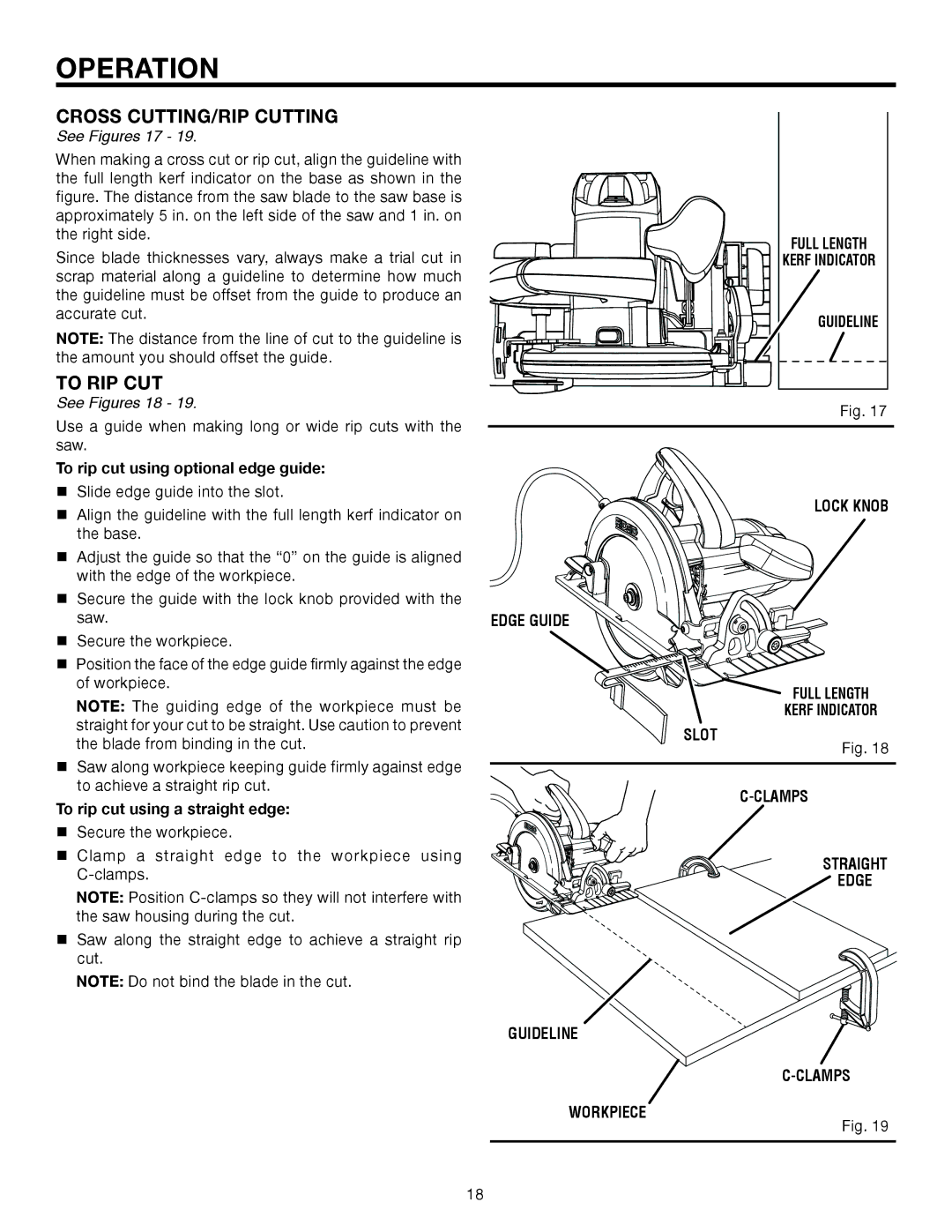
OPERATION
CROSS CUTTING/RIP CUTTING
See Figures 17 - 19.
When making a cross cut or rip cut, align the guideline with the full length kerf indicator on the base as shown in the figure. The distance from the saw blade to the saw base is approximately 5 in. on the left side of the saw and 1 in. on the right side.
Since blade thicknesses vary, always make a trial cut in scrap material along a guideline to determine how much the guideline must be offset from the guide to produce an accurate cut.
NOTE: The distance from the line of cut to the guideline is the amount you should offset the guide.
TO RIP CUT
See Figures 18 - 19.
Use a guide when making long or wide rip cuts with the saw.
To rip cut using optional edge guide:
Slide edge guide into the slot.
Align the guideline with the full length kerf indicator on the base.
Adjust the guide so that the “0” on the guide is aligned with the edge of the workpiece.
Secure the guide with the lock knob provided with the saw.
Secure the workpiece.
Position the face of the edge guide firmly against the edge of workpiece.
NOTE: The guiding edge of the workpiece must be straight for your cut to be straight. Use caution to prevent the blade from binding in the cut.
Saw along workpiece keeping guide firmly against edge to achieve a straight rip cut.
To rip cut using a straight edge:
Secure the workpiece.
Clamp a straight edge to the workpiece using
NOTE: Position
Saw along the straight edge to achieve a straight rip cut.
NOTE: Do not bind the blade in the cut.
FULL LENGTH
KERF INDICATOR
GUIDELINE
Fig. 17
LOCK KNOB
EDGE GUIDE
FULL LENGTH
KERF INDICATOR
SLOT
Fig. 18
STRAIGHT
EDGE
GUIDELINE
WORKPIECE
Fig. 19
18
